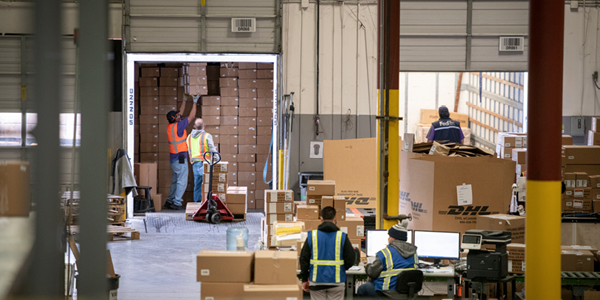Combating the Logistics Labor Shortage By Addressing Driving Factors

Understanding the underlying causes behind the logistics labor shortage is key to addressing it. Here are the strategies implemented by Taylored Services to combat the shortage.
The U.S. labor market is experiencing a crisis, with shortages across all sectors and pay levels. According to the Bureau of Labor Statistics, there are currently 9.2 million job openings, and more than 164,000 people voluntarily left their work in June 2021.
Despite an hourly wage increase of 4.8% this year, job vacancies in logistics are at a 20-year high and represent 5.8% of openings across all industries. While there are a variety of reasons why companies are experiencing these shortages, the COVID-19 pandemic has certainly had a significant impact.
Exploring the Causes
The stimulus package is being widely blamed as one of the primary causes behind the shortage. However, in only three states (Montana, North Dakota, and Wyoming) do the federal benefits compensate for wage loss, and only 3% of workers report not wanting to return to work as a result of unemployment benefits. It’s debatable if the benefits alone have been the cause, but benefits allowed for individuals to evaluate their current working situation and decide if they want to continue or pursue other opportunities.
This is especially true for individuals in industries where working from home is not an option, such as logistics. Workers wanting better conditions are now in a unique position to effect change.
Minimum wage has been an increasingly popular topic. The current federal minimum wage is only 41.4% of what it should be if it were properly adjusted for inflation over time. The effort to close this gap and address worker demands for better pay has resulted in a competitive frenzy to attract employees with higher wages and benefits than previously offered.
Finally, family obligations are also having a significant effect on prime-age workers, with 1.8 million fewer women in the workforce than before the pandemic.
Fundamentally, workers want more. They want better working conditions, benefits, pay, and flexibility. This has resulted in a situation where companies are scrambling to attract new workers with incentives, while also balancing the need to keep labor costs at an affordable level.
Improving labor levels
To minimize the impact that these shortages have on normal operations, Taylored Services has implemented measures designed to incentivize employees.
Taylored introduced additional pay increases, with an additional bonus for completing a full 40-hour work week. Experienced and tenured agencies are also supplementing the internal workforce with an increased presence. To further entice agencies to provide the most qualified workers, there are significant fiscal incentives to increase labor fill rates to 95%. Enhanced benefits, such as weekly catered lunches and gifts to improve working conditions, were also introduced across facilities. Aside from these measures, Taylored is continuously exploring ways to improve and maintain sufficient labor levels.
Companies will need to continue adapting and responding to the changing wants and needs of their workforce. Proactivity and a more profound understanding of what is important in the workplace environment will be a key strategy in the future to avoid the shortages seen in today’s market.

tayloredservices.com
732-750-9000
[email protected]
